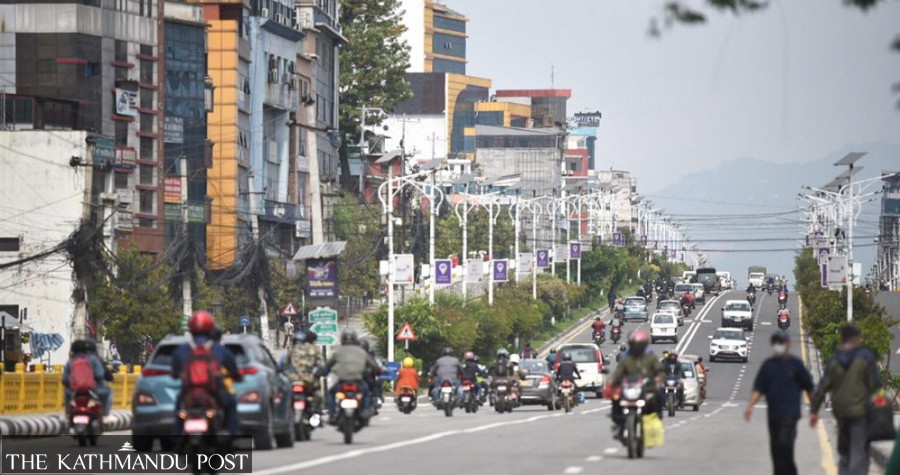Valley
Prohibitory orders extended for a week with eased restrictions
Odd-even number rule for vehicles, more shops allowed to reopen.
Anup Ojha
The prohibitory orders in place in the three districts of Kathmandu Valley since April 29 have been extended till June 28 with some relaxation, such as implementing an odd-even number rule for vehicle movement and allowing businesses to operate on alternate days.
A meeting of the Valley’s three chief district officers on Sunday announced the decision to loosen up the lockdown rules starting Tuesday considering the declining cases of Covid-19 infections in the Valley.
“There has been a decision to allow vehicles to operate based on odd-even number rules. Even taxis will be allowed to operate” said Dhundi Prasad Niraula, chief district officer of Lalitpur.
“It will take some time to lift the restriction on public vehicles as the situation has still not improved to the desired level.”
The three local administrations of the Kathmandu Valley have also decided to allow shops and businesses to open on alternate days.
“While grocery and department stores will be allowed to open till 11am every day, various other shops will remain open from 11am to 4pm and 11 am to 6pm,” Prem Prasad Bhattrai, chief district officer of Bhaktapur, said.
According to the notice published by the District Administration Office, Kathmandu, jewellery shops, electronics stores and automobile shops will be allowed to open on Sundays, Tuesdays and Thursdays. Shopping malls, clothing stores, gift shops, sports apparel stores and cosmetic shops will be allowed to operate on Mondays, Tuesdays and Fridays.
Earlier, the authorities had allowed shops selling essential items to operate till 11am.
Restaurants were allowed to run takeaway services till 7pm. Similarly, shops selling construction materials, bathroom fixtures and accessories and furniture stores were allowed to open from 11am till 6pm. Vehicles carrying construction materials were also allowed to operate at night.
The daily Covid-19 cases have been coming down after peaking on May 11 when the country confirmed a record 9,317 new infections. On April 29, when the prohibitory orders were imposed in the Valley, 4,831 cases had been reported countrywide.
On Sunday, the daily new infection numbers in the country had come down to 1,421 with 51 fatalities.
While the district authorities of the Kathmandu Valley are planning to loosen up the lockdown rules, Covid-19 Crisis Management Centre (CCMC), the government body responsible for Covid-19 containment, is reportedly working on implementing a “smart lockdown.”
Madhav Prasad Dhungel, deputy secretary and information officer of the CCMC said they were planning to implement “smart lockdowns” across the country starting next week.
“Smart lockdown is a modality where the lockdown restrictions will be eased after evaluating the conditions of particular areas,” said Dhungel. “We are analysing the situation of every individual district. The prohibitory orders or lockdown will be eased based on the Covid-19 situation of a particular district.”
However, there has been some criticism over the use of the term “smart”, as the country could not close or tighten the porous border with India when the second wave of Covid-19 was rife in the southern border. And still the movement of people along the 1,800- kilometer border remains unregulated as thousands of people cross over to each other’s territory every day.
“There is no smartness in the government's move. It could have tightened the border with India. It didn’t and the situation has become severe here,” said Dr Baburam Marasaini, former director at the Epidemiology and Disease Control Division.
He said the government should work to break the chain of virus transmission by identifying the infected areas.
He likened the government’s plan of “smart lockdowns” to that of “smart cities”, “smart toilets” and “smart solar lamps” that have failed to materialise.
Dr Sher Bahadur Pun, chief of the Clinical Research Unit at Sukraraj Tropical and Infectious Disease Hospital, said he did not know what exactly “smart lockdown” means. “I am not aware of the term. I am guessing that the government is trying to get the economy going amid the lockdown,” said Pun.




 22.12°C Kathmandu
22.12°C Kathmandu.jpg)












